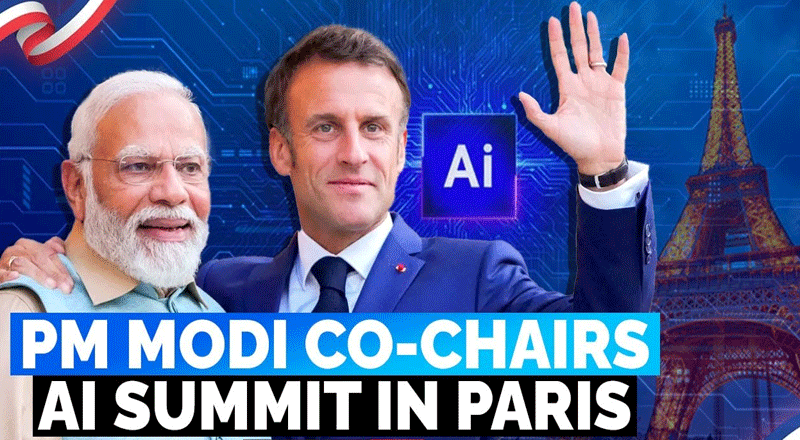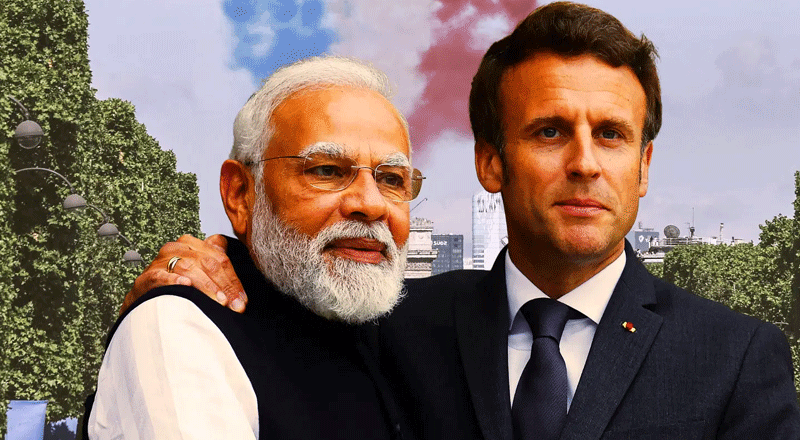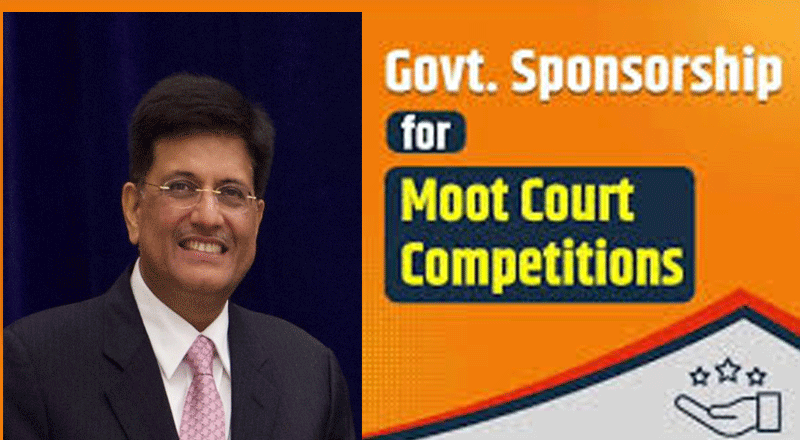The rapid advancements in Artificial Intelligence (AI) have sparked discussions on its potential benefits and inherent risks. The Paris Artificial Intelligence Summit 2025 brought together world leaders, tech giants, and policymakers to address the pressing need for AI governance. Co-chaired by Indian Prime Minister Narendra Modi and French President Emmanuel Macron, the summit served as a platform for deliberating on AI regulations, innovation, and its global impact. Modi’s presence emphasized India’s commitment to ensuring ethical AI development while preventing technological dominance by a few global powers.
Addressing Biases in AI
During his address, PM Modi underscored the significance of mitigating biases in AI technologies. While recognizing AI’s vast potential in transforming various sectors, he cautioned against unchecked biases that could lead to unintended consequences. “We are at the dawn of an AI age that will shape humanity’s future. While concerns about AI surpassing human intelligence exist, it is ultimately us, humans, who will determine its course,” Modi stated.
Highlighting the responsibility of global leaders, Modi stressed the need for collective governance to establish ethical AI standards that promote inclusivity, security, and trust. He asserted that AI governance should not merely focus on risk management but also foster innovation that benefits all.
The AI Framework: Building Consensus
The AI Summit focused on laying down a structured framework to guide AI innovation while addressing potential threats. France’s President Macron emphasized the role of AI in improving education, healthcare, environmental sustainability, and economic growth. He highlighted Europe’s aspirations to become a leader in AI development through responsible investments and strategic partnerships.
However, building a consensus on AI governance proved challenging. The United States remained ambiguous about supporting international regulatory frameworks, with reports suggesting that the UK might also refrain from signing the final declaration. Experts at the summit acknowledged that shaping AI governance requires addressing geopolitical tensions, ethical concerns, and regulatory complexities.
Modi’s Role as a Bridge-Builder
As co-chair of the summit, PM Modi played a crucial role in advocating for an inclusive AI ecosystem. He emphasized the necessity of equitable AI access to prevent exacerbating the digital divide. India’s Foreign Secretary Vikram Misri reiterated India’s commitment to ensuring that AI development does not solely benefit technologically advanced nations but also supports developing economies.
Modi’s participation reinforced India’s stance as a global AI collaborator rather than a competitor. By pushing for collective responsibility, India aims to prevent AI from becoming a battleground for US-China rivalry and instead promote AI as a tool for global good.
Investment and the Global AI Race
Tech giants such as Google, Microsoft, and OpenAI actively participated in the summit, exploring AI’s applications across sectors. France announced plans for private AI investments worth $113 billion over the next few years, aiming to position itself as a formidable player in AI innovation. Macron framed these investments as Europe’s equivalent of Trump’s Stargate AI data centers project.
China, meanwhile, took a firm stance on AI accessibility. Beijing opposed restrictions on AI tools and advocated for open-source AI to ensure its benefits are shared globally. This position, however, has led to concerns in the US Congress over potential security risks associated with AI advancements in China.
AI and Its Geopolitical Implications
The AI race has become an arena for geopolitical manoeuvring. With the US and China competing for dominance, countries like India and France are striving to foster a collaborative AI landscape. The Paris summit highlighted the need for global partnerships to prevent AI from being monopolized by a few nations.
India’s advocacy for an equitable AI framework aligns with its broader digital initiatives, ensuring that emerging technologies serve humanity rather than just a select group of powerful nations. By positioning itself as a mediator, India aims to shape an AI-powered future that is ethical, inclusive, and innovation-driven.
The Paris AI Summit underscored the growing urgency for international cooperation in AI governance. While the discussions highlighted both the promises and perils of AI, consensus on regulation remains elusive. As co-chair, PM Modi played a crucial role in advocating for responsible AI development that prioritizes fairness, inclusivity, and global cooperation.
The summit reaffirmed India’s commitment to shaping AI policies that balance innovation with ethical considerations. As AI continues to evolve, nations must work collectively to harness its potential while safeguarding against its risks. The road ahead remains challenging, but international dialogues like the Paris summit are essential steps toward an AI-driven future that serves all of humanity.
(With inputs from agencies)





